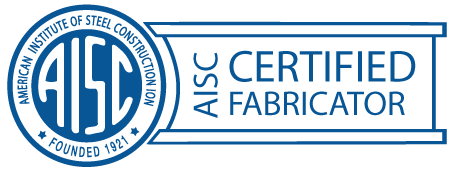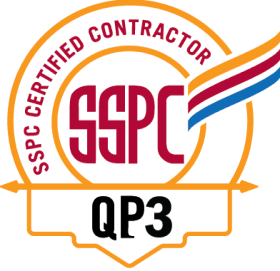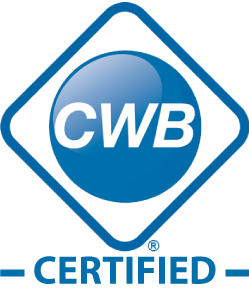In contrast to field-erected tanks, which are constructed at the job site, shop-built tanks are fabricated and assembled within a tank manufacturing facility. After assembly, testing and coating, the completed tanks are then shipped to the job site and installed.
There are many different types of shop-built tanks, each one optimized to store a different type of product. These tanks vary based on shape, intended use, and the codes and standards to which they’re built.
.jpg?width=472&height=576&name=Different%20Types%20of%20Shop-Built%20Tanks%20(1).jpg)
Different Types of Shop-Built Tanks
To help you decide which shop-built tank is ideal for your product, this blog post will introduce you to five of the most common kinds of shop-built tanks. These tanks are:
- Atmospheric/low-pressure tanks
- Thermal storage tanks
- Protected, fire-rated, and fire-resistant tanks
- High-pressure vessels
The kind of product you plan on storing in your shop-built tank will determine the shape of your tank, its standard requirements, and other variables for you.
Atmospheric Storage Tanks
Atmospheric tanks are designed to hold product at pressures ranging from ambient pressure (the normal weight of the atmosphere) to 02.5 PSI.
Types of product atmospheric/low-pressure tanks can hold:
- Water storage
- Wastewater
- Petroleum products
- Chemicals
- Pulp
Applicable codes and standards:
- API 650
- NFPA-22
- AWWA D100
- AWWA D102
- AWWA D652
- UL 142
- STI Standard F921
To learn more about atmospheric tanks, read this case study of a shop-built tank job the fabrication experts here at T BAILEY LLC completed.
Thermal Storage Tanks
Thermal storage tanks are designed to either maintain product temperature or heat product up prior to movement. The kind of heating system will depend on the product and tank, but often takes the form of heating coils installed inside the tank.
Types of product thermal tanks can hold:
- Water storage
- Petroleum products
- Chemicals
- Pulp
- Animal products, like fish oil
Applicable codes and standards:
- AWWA D100, API 650
To learn more about thermal storage tanks, read this case study about an order of 70,000-gallon shop-built thermal storage tanks that T BAILEY LLC fabricated for a fish-oil storage facility.
Protected, Fire-Rated, & Fire-Resistant Tanks
These robust fuel storage tanks are designed to be virtually indestructible. The exact protection system depends on the standard used, but the most common design is a double-walled steel tank with 3-6” of concrete insulation installed between the two walls.
Types of product protected tanks can hold:
- Petroleum products
Applicable codes and standards:
- UL 2085
- UL 2244
- STI Standard F941
- ULC S655
To learn more about how robust these protected tanks are, read this case study about an order of state-of-the-art Fireguard® tanks that T BAILEY LLC fabricated for the US Air Force.
High-Pressure Vessels
While the terms “tank” and “vessel are often used interchangeably, the difference between a shop-built tank and a vessel is that pressure vessels operate under greater pressures than those allowed under API 650 and 620. Pressure vessels have internal pressures ranging from 15 PSI to 3000 PSI.
Types of product pressure vessels can hold:
- Petroleum products
- Chemicals
- Water
Applicable codes and standards:
- ASME Section VIII Div 1
To learn more about pressure vessels, read this case study about an ASME pressure vessel T BAILEY LLC fabricated for Shell.
Different Shapes of Shop-Built Tanks
Shop-built tanks and vessels come in a variety of shapes and bottoms or heads. These include:
- Horizontal tanks
- Vertical tanks
- Flat bottom
- Cone bottom
- Shovel bottom
- Rounded heads
The orientation of the tank and the kind of bottom is usually decided by the amount of space available at the job site, as well as the kind of product being stored.
For an atmospheric product, a vertical tank is typically the most economical choice.
Additional Resources
If you’re unsure if a shop-built tank is right for your situation, read this blog post for a breakdown of the pros and cons of shop-built vs. field-erected tanks.
Or, if you’d like to learn more about how T BAILEY LLC can fulfil your tank needs, please contact our office today. Our industry-leading tank fabrication professionals will help you navigate the requirements of the job, offer suggestions, and provide you with quality and competitive shop-built tank services.







